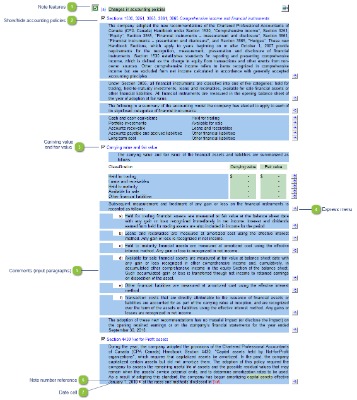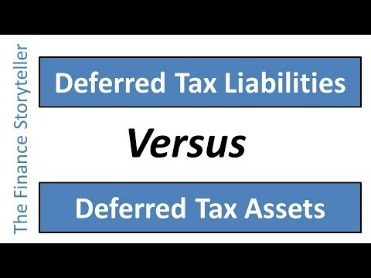
Depending on the size of your organization, you could have different employees in charge of each of the five principles. Without a plan in place, it would be nearly impossible to come to the same conclusions about your financial health at the end of every month. Therefore, facts on the specific identification method of inventory valuation these are just two of the reasons establishing the accounting principles at your business connects to your success. Besides, this method helps to measure the income generated during the specific accounting period which also helps to distribute the same periodically.
Accounting Matters – Federal Energy Regulatory Commission
Accounting Matters.
Posted: Wed, 30 Aug 2023 18:35:32 GMT [source]
This prevents accountants from over estimating future revenues and underestimated future expenses that could mislead financial statement users. Matching Principle – states that all expenses must be matched and recorded with their respective revenues in the period that they were incurred instead of when they are paid. This principle works with the revenue recognition principle ensuring all revenue and expenses are recorded on the accrual basis. Revenue Recognition Principle – requires companies to record revenue when it is earned instead of when it is collected.
Compliance rules
Revenue – The representation of the money a business has earned in sales during an accounting period, revenue is calculated by subtracting the business costs from the total revenue. Accounting principles differ around the world, meaning that it’s not always easy to compare the financial statements of companies from different countries. The cost principle is the concept that a business should not use the resell cost to record the cost of an item in the books. You should list the historical costs of the property as the cost, instead of the fair market value of the property. Bear in mind any overhead costs you might be forgetting when factoring in this accounting term.

Without the right accounting standards, publicly traded companies would be free to present their financial information in whatever format that casts the company’s position in the best possible light. In fact, such faulty and deceiving reporting practices are considered to be one of the primary factors that ultimately led to the Great Depression in 1929. Generally accepted accounting principles are a set of standards outlining the processes of business accounting.
The primary exceptions to this historical cost treatment, at this time, are financial instruments, such as stocks and bonds, which might be recorded at their fair market value. According to this concept, revenue is considered as earned on the date when it is realised. In other words, revenue realised (either by sale of goods or by rendering services) during an accounting period should only be taken in the income statement (Profit and Loss Account). The Principle of Continuity dictates that accountants must value assets based on the assumption that the company will continue its normal operations. This principle prevents companies from valuing their assets based on speculative future plans. Although the federal government requires that all publicly traded companies adhere to GAAP standards, financial reporting requirements for state and local governments differ based on location.
Periodicity Assumption
Some scholars have argued that the advent of double-entry accounting practices during that time provided a springboard for the rise of commerce and capitalism. What would become the American Institute of Certified Public Accountants (AICPA) and the New York Stock Exchange (NYSE) attempted to launch the first accounting standards to be used by firms in the United States in the 1930s. This makes it easier for investors to analyze and extract useful information from the company’s financial statements, including trend data over a period of time. It also facilitates the comparison of financial information across different companies. Accounting principles also help mitigate accounting fraud by increasing transparency and allowing red flags to be identified. The current set of principles that accountants use rests upon some underlying assumptions.
- To facilitate comparisons, the financial information must follow generally accepted accounting principles.
- So, accounting helps to express heterogeneous economic activities in terms of money.
- The time interval has to be identified in the headings of the financial statements such as the income statement, statement of cash flow, and stockholders’ equity statement.
- It also facilitates the comparison of financial information across different companies.
- The primary reason for this distinction is that the typical company can have several to thousands of owners, and the financial statements for corporations require a greater amount of complexity.
Of course, the information needs of individual users may differ, requiring that the information be presented in different formats. Internal users often need more detailed information than external users, who may need to know only the company’s value or its ability to repay loans. In most cases, GAAP requires the use of accrual basis accounting rather than cash basis accounting. Under cash basis accounting, revenues are recognized only when the company receives cash or its equivalent, and expenses are recognized only when the company pays with cash or its equivalent.
What Are Accounting Principles?
Under this concept, every transaction has got a two-fold aspect—(i) yielding to or receiving of benefit, and (ii) giving of that benefit. For instance, when a firm acquires an asset (receiving of the benefit) it must pay cash (giving of the benefit). Therefore, two accounts are to be passed in the books of accounts, one—for receiving the benefit and the other—for giving the benefit.

Comparability is the ability for financial statement users to review multiple companies’ financials side by side with the guarantee that accounting principles have been followed to the same set of standards. The ultimate goal of standardized accounting principles is to allow financial statement users to view a company’s financials with certainty that the information disclosed in the report is complete, consistent, and comparable. Another important argument in favor of the basic accounting concepts is for company cohesion.
What Are the Basic Accounting Principles?
These components create consistent accounting and reporting standards, which provide prospective and existing investors with reliable methods of evaluating an organization’s financial standing. Without GAAP, accountants could use misleading methods to paint a deceptive picture of a company or organization’s financial standing. This principle states that revenue should be recognized in the accounting period that it was realizable or earned.
- Currently, the SEC works closely with various private organizations setting GAAP, but does not set GAAP itself.
- There are five overall principles to managing the financial transactions of sponsored research funds.
- For example, how should an accountant report the cost of equipment expected to last five years?
- Going Concern Concept helps other business undertakings to make contracts with specific business units for business dealings in future.
- You could own any type of business and you’d still be operating using the same accounting principles.
While it’s not necessary for you to know every in and out of GAAP unless you’re an accountant, you’re doing well to at least familiarize yourself with the basic principles. Gaining at least a conceptual understanding of the motivations behind GAAP will help you keep the financial reporting side of your business running smoothly. All negative and positive values on a financial statement, regardless of how they reflect upon the company, must be clearly reported by the accounting team.
GAAP (generally accepted accounting principles)
To achieve compliance, companies must follow all 10 GAAP rules and validate compliance through an external audit. Some companies also assemble an internal auditing team, which is responsible for reviewing statements and practices prior to third-party certification. If issues are found during the audit process, external auditors can work with your organization to remedy problems and allow for certification at a future date. This principle allows stakeholders to compare financial reports over time and prevents companies from disguising information (intentionally or otherwise) by changing the way that information is recorded.
Objectivity Principle – financial statements, accounting records, and financial information as a whole should be independent and free from bias. The financial statements are meant to convey the financial position of the company and not to persuade end users to take certain actions. Full Disclosure Principle – requires that any knowledge that would materially affect a financial statement user’s decision about the company must be disclosed in the footnotes of the financial statements. This prevents companies from hiding material facts about accounting practices or known contingencies in the future. Under the accrual basis of accounting, revenue must be reported on the income statement in the period in which it is earned. This means that as soon as a product is sold, or a service has been performed, the company recognizes revenue from the sale.
Employment Manager, Accounting Southwest… – marketplace.dailyherald.com
Employment Manager, Accounting Southwest….
Posted: Sat, 02 Sep 2023 10:08:42 GMT [source]
The 5 basic accounting principles are- the revenue Principle, Cost Principle, Matching Principle, Full Disclosure Principle, and Objectivity Principle. Bookkeeping means recording and maintaining the financial statements of a business entity in an organized manner. Accounting is the process of recording, classifying, reporting, and summarizing the financial transactions of a business entity. There are two types of accounting processes- Single Entry System and Double Entry System. Accounting Process means the process used to record the financial transaction of a particular business entity in the book of accounts. It means that a company or business entity should list all necessary information in its financial statements.
In most cases this is pretty straightforward, but for some policies, issues, and uncommon transactions the way in which a company should disclose information can become unclear. Include the following to cover the majority of issues and events within the financials as to avoid misleading investors. They include revenue recognition principles, cost principles, matching principles, full disclosure principles, and objectivity principles. When accounting principles allow a choice among multiple methods, a company should apply the same accounting method over time or disclose its change in accounting method in the footnotes to the financial statements.
Tags :